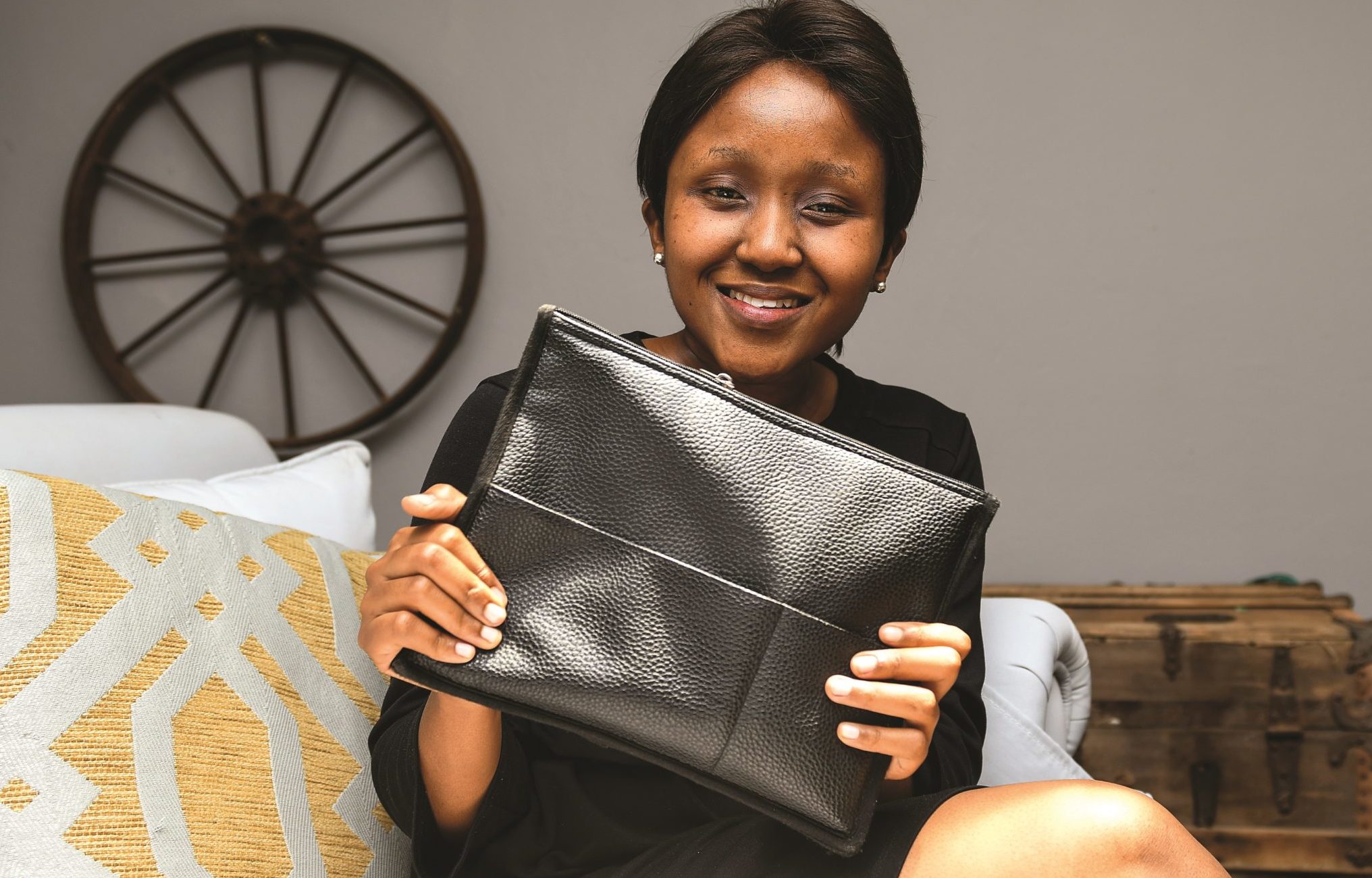Reabetswe Ngwane has come a long way from Rustenburg, and she has covered the journey on recycled tyres – literally.
The bubbly and ambitious Ngwane, raised in Mogwase, a township in Rustenburg in the North West Province of South Africa, recycles tyre tubes for a living, and has been able to turn waste to wealth.
When we meet her in the affluent suburb of Sandton in Johannesburg, she is late, having driven in from Rustenburg after another meeting. Dressed formally in black, she settles to talk about where it all began.
Ngwane’s entrepreneurial journey unraveled when she relocated from the township to the city in Rustenburg where she started her first business with a friend. They recycled plastic bags, turning them into school bags with solar lanterns, provided to kids in underprivileged areas.
Unfortunately, that partnership did not last.
Loading...
READ MORE: ‘Roll Up Your Sleeves, Walk Past That Handbag’
“Then we parted ways respectively in business and generally. That’s when I started the tyre business with my sister [Katlego],” says Ngwane.
The business picked up. They were approached by REDISA (Recycling and Economic Development Initiative In South Africa) who offered to handle their Rustenburg tyre depot.
Ngwane wanted to learn and research more about all the elements that went into the tyre business.
So she did what most wouldn’t think of – she consulted with the people pushing trolleys on the side of road recycling scrap.
“They work extensively at the mine fields; in a nutshell, they are industry experts. We went to them, consulted with them. [About an] alternative to plastic, because that’s all I knew. I asked them ‘what else I could use as a resource to make up products’ and they advised on the tyre tubes and it became a business,” she says.
The business’ main focus is recycling tyre tubes to make fashionable bags.
The whole process begins by transporting the tyre tubes to one of their work sites where they wash, clean and refurbish them. They are then taken to a production factory where they are cut into respective patterns depending on orders.
Ngwane has her products in a store, Mememe, in Cape Town in the Western Cape, and another in South African capital Pretoria, called In Bloom. She also takes orders online. Her bags range from R500 ($43) to R1,400 ($120).
She not only recycles tyre tubes to create trendy bags, but also makes products for the mining and construction industries.
These orders differ from the retail industry.

Reabetswe Ngwane. Photo by Motlabana Monnakgotla.
“The retail industry is not as mass-orientated as the mining and construction industry. With the retail industry, it depends on how many orders of these we get, how many orders of backpacks we make, and then the patterns are made and then the bags. With regards to mining and construction, there are three sets of products we provide to them,” she says.
For the mines, Ngwane makes first-aid kit bags used by the workers underground and over the ground. The material mostly used for this previously was canvas, which is not durable, she says.
Ngwane also makes respiratory bags or masks used by the workers. The biggest orders she gets from the mines are however for seat protectors.
“It’s like a shield that covers your bum, you strap it on your waist, strap it on your legs, as the guys drilling underground [are] scooting backwards and forwards; because they [are] scooting, they damage their Personal Protective Equipment (PPE) and bump into hard surfaces like rocks, and corrosive liquids whatever the case may be; [the seat protector] is used to protect them,” she says.
Ngwane is the first to break into this kind of market, she says.
She recalls the days she had to knock on several doors to get her business going. Her research involved ongoing conversations with users in the mines asking them about the durability of canvas.
Ngwane is contracted to an entity that supplies a lot of the mines in the North West of South Africa with PPE. With her sister Katlego, their company, KreamFields, has been in operation for the last two years, and their fortune is growing.
Their work also has social significance as recycling waste means helping the environment rid itself of rubber scrap.
Ngwane seems to have literally reinvented the wheel turning tyre tubes to tote bags.
Loading...
